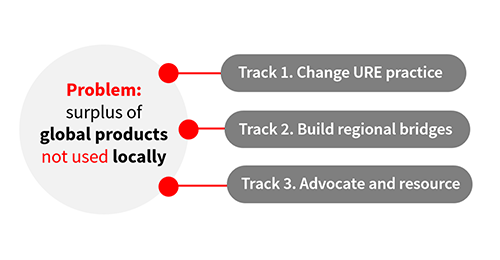
NORRAG was commissioned in late 2021 by the UNESCO Education 2030 Section to provide research and recommendations on how to improve the use of evidence in education policy, practice and planning to support the newly established SDG4-Education 2030 High-Level Steering Committee (HLSC) was assigned three functions:
The NORRAG study (February 2022) addressed the first functional area: how the use of research evidence for policy, planning, and implementation could be promoted to more effectively work toward achieving Sustainable Development Goal 4 (SDG 4). It draws on a survey, individual and group interviews, and a comparator case study with the public health sector.
Two problems were identified: First, despite living in an era with a surplus of globally produced data and research, there is still limited uptake in policy, planning, and implementation. Secondly, global actors keep producing a great number of studies that are not used at the local level. These two broken feedback loops need to be closed.
The report concluded that the current approach to improving the use of research and evidence is not working. We recommend that all countries and institutions (South and North)
On 13 July 2021, the Ministerial Segment of the 2021 Global Education Meeting (GEM) approved a proposal for a new Global Education Cooperation Mechanism (GCM) that enables more effective global and regional cooperation for the Sustainable Development Goal 4. Calls for more effective global cooperation and steering of international education agendas are not new; they have been recurring since the 1990s. Nevertheless, the necessity to be able to act globally and fast became more apparent during the COVID-19 crisis.
Report coming soon from UNESCO